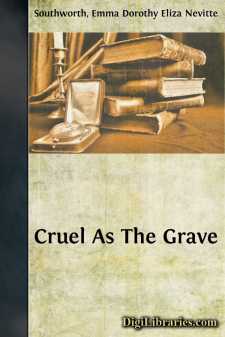Categories
- Antiques & Collectibles 13
- Architecture 36
- Art 48
- Bibles 22
- Biography & Autobiography 813
- Body, Mind & Spirit 142
- Business & Economics 28
- Children's Books 17
- Children's Fiction 14
- Computers 4
- Cooking 94
- Crafts & Hobbies 4
- Drama 346
- Education 46
- Family & Relationships 57
- Fiction 11829
- Games 19
- Gardening 17
- Health & Fitness 34
- History 1377
- House & Home 1
- Humor 147
- Juvenile Fiction 1873
- Juvenile Nonfiction 202
- Language Arts & Disciplines 88
- Law 16
- Literary Collections 686
- Literary Criticism 179
- Mathematics 13
- Medical 41
- Music 40
- Nature 179
- Non-Classifiable 1768
- Performing Arts 7
- Periodicals 1453
- Philosophy 64
- Photography 2
- Poetry 896
- Political Science 203
- Psychology 42
- Reference 154
- Religion 513
- Science 126
- Self-Help 84
- Social Science 81
- Sports & Recreation 34
- Study Aids 3
- Technology & Engineering 59
- Transportation 23
- Travel 463
- True Crime 29
Capitola's Peril A Sequel to 'The Hidden Hand'
Description:
Excerpt
CHAPTER I.
THE ORPHAN'S TRIAL.
"We met ere yet the world had come
To wither up the springs of youth,
Amid the holy joys of home,
And in the first warm blush of youth.
We parted as they never part,
Whose tears are doomed to be forgot;
Oh, by what agony of heart
Forget me not!—forget me not!"
—Anonymous.
At nine o'clock the next morning Traverse went to the library to keep his tryst with Colonel Le Noir.
Seated in the doctor's leathern chair, with his head thrown back, his nose erect and his white and jeweled hand caressing his mustached chin, the colonel awaited the young man's communication.
With a slight bow Traverse took a chair and drew it up to the table, seated himself and, after a little hesitation, commenced, and in a modest and self-respectful manner announced that he was charged with the last verbal instructions from the doctor to the executor of his will.
Colonel Le Noir left off caressing his chin for an instant, and, with a wave of his dainty hand, silently intimated that the young man should proceed.
Traverse then began and delivered the dying directions of the late doctor, to the effect that his daughter Clara Day should not be removed from the paternal mansion, but that she should be suffered to remain there, retaining as a matronly companion her old friend Mrs. Marah Rocke.
"Umm! umm! very ingenious, upon my word!" commented the colonel, still caressing his chin.
"I have now delivered my whole message, sir, and have only to add that I hope, for Miss Day's sake, there will be no difficulty thrown in the way of the execution of her father's last wishes, which are also, sir, very decidedly her own," said Traverse.
"Umm! doubtless they are—and also yours and your worthy mother's."
"Sir, Miss Day's will in this matter is certainly mine. Apart from the consideration of her pleasure, my wishes need not be consulted. As soon as I have seen Miss Day made comfortable I leave for the far West," said Traverse, with much dignity.
"Umm! and leave mama here to guard the golden prize until your return, eh?" sneered the colonel.
"Sir, I do not—wish to understand you," said Traverse with a flushed brow.
"Possibly not, my excellent young friend," said the colonel, ironically; then, rising from his chair and elevating his voice, he cried, "but I, sir, understand you and your mother and your pretty scheme perfectly! Very ingenious invention, these 'last verbal instructions.' Very pretty plan to entrap an heiress; but it shall not avail you, adventurers that you are! This afternoon Sauter, the confidential attorney of my late brother-in-law, will be here with the will, which shall be read in the presence of the assembled household. If these last verbal directions are also to be found duplicated in the will, very good, they shall be obeyed; if not, they shall be discredited."
During this speech Traverse stood with kindling eyes and blazing cheeks, scarcely able to master his indignation; yet, to his credit be it spoken, he did "rule his own spirit" and replied with dignity and calmness:
"Colonel Le Noir, my testimony in regard to the last wishes of Doctor Day can, if necessary, be supported by other evidence—though I do not believe that any man who did not himself act in habitual disregard of truth would wantonly question the veracity of another."
"Sir!...












